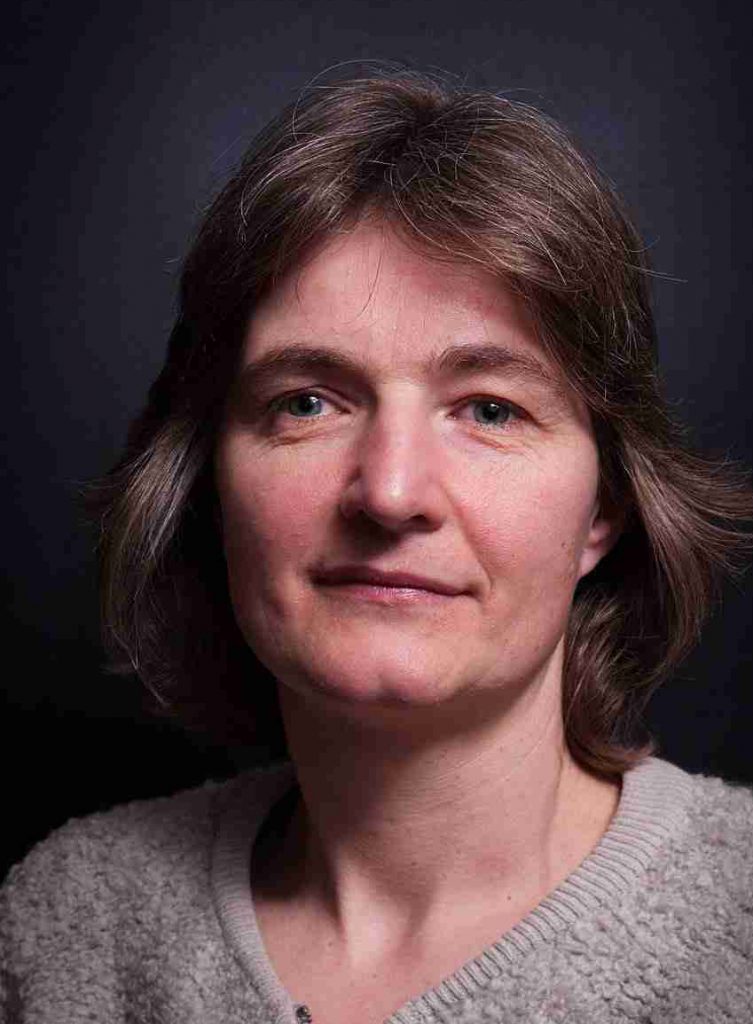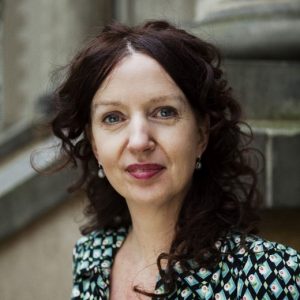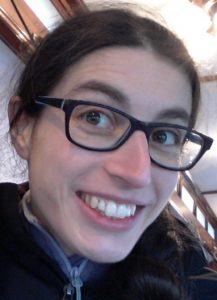Please allow us to introduce ourselves very briefly, and please do get in touch with us if you want to know more about our project, our database or our publications. Also if you wish to add data to the database, please send us a message. We would welcome an expansion of our data very much.
 Mariken Teeuwen
Mariken Teeuwen
Mariken Teeuwen is a senior researcher at Huygens ING, Endowed Professor of the Transmission of Medieval Latin Texts at Utrecht University (Department of History and Art History), and she was the Principal Investigator in the Marginal Scholarship project. She set up the research plan, assembled the team, set the researchers on their path and let them do the work, so as to learn from them as much as possible. She was also responsible for setting up the structure of the database and discuss its functionalities with the ICT developers of Huygens ING.
Her background is in musicology, manuscript studies and medieval Latin. Her main interest is in intellectual history of the (early) Middle Ages, with publications on the Carolingian reception of the ancient ars musica, commentary traditions on Martianus Capella, but also the vocabulary of intellectual life in the Middle Ages. More information can be found at her academic website.
In the Marginal Scholarship project she focused on manuscripts from the Leiden University Library collection, manuscripts associated with certain scholars (Lupus of Ferrières, Heiric of Auxerre), and collections of manuscripts from the intellectual centres of Lorsch (together with the intern Robin van de Water), Corbie (together with intern Birgit ter Horst) and Auxerre (together with intern Lenneke van Raaij).
 Irene van Renswoude
Irene van Renswoude
Irene van Renswoude was postdoc in the project ‘Marginal scholarship’ and studied the role of marginal annotations in the fields of debate and censorship. Since becoming involved in the research group History of Science at Huygens ING, she developed an interest in patterns of knowledge production and dissemination, which not only influenced the direction of the postdoc project but also resulted in a series of lectures on “The formation of the medieval knowledge society”, as guest professor at the University of Vienna, in which also Mariken appeared with a lecture on astronomy and the ars musica. At present, she participates in the research programme ‘The Formation of a Knowledge Society in a Globalizing World’, a cooperation between the Max Planck Institute for the History of Science Berlin, Descartes Centre Utrecht and Huygens ING Den Haag. In 2012 she won the Erasmus study award and in 2014 the Heineken Young Scientist Award for History.
After 4 years of working side by side on marginal annotations, Mariken and Irene were still not tired of the topic (nor of the cooperation), and so they applied for a follow-up project, ‘The art of reasoning. Techniques of Scientific Argumentation in the Medieval Latin West (400-1400)’, funded by NWO, that will allow them to continue investigating practices of annotation. Evina, who decided to pursue her own intellectual path, will remain involved, which means that the fruitful cooperation of the three marginal scholars will continue!
Find out more on Irene’s academic website.
 Evina Steinová
Evina Steinová
Evina Steinová was the PhD in the Marginal Scholarship project. Between September 2011 and September 2015, she studied the use of symbols, rather than words or images, in early medieval annotation practices. She presented the conclusions of her research in a dissertation entitled Notam superponere studui: the Use of Technical Signs in the Early Middle Ages that she defended cum laude at Utrecht University in March 2016.
Evina’s main contribution to the database was the inputting of the 184 manuscripts from the Bayerische Staatsbibliothek, which represent the data set used in her dissertation research. She also collaborated on the development of the blueprint of the database and on various functional categories and tags you can see in the database.
Apart from early medieval annotation practices, her research interests include also early medieval glossaries, Latin apocryphal Acts of the Apostles, Jewish-Christian relationships in the medieval Europe and history of science in the pre-modern times. You can learn more about her research and read some of her publications at her academic website.
